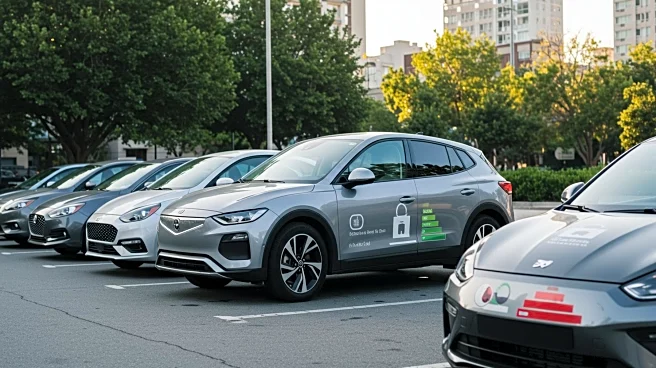What is the story about?
What's Happening?
Reading Borough Council is seeking public input on a proposal to implement emissions-based parking charges. The plan aims to charge higher fees for vehicles with greater carbon dioxide emissions, specifically targeting petrol and diesel vehicles. The council has already conducted an informal consultation and is now holding a formal one, open until September 12. The initiative is part of a broader strategy to reduce emissions and enhance air quality in Reading. Vehicles emitting 151g/km or more will face additional charges, with tariffs set at 20% for petrol and 25% for diesel vehicles. The council encourages the use of lower emission vehicles and alternative transportation methods such as public transport, cycling, and walking.
Why It's Important?
The proposal is significant as it addresses the pressing issue of air pollution, which affects public health, particularly in urban areas. By incentivizing the use of lower emission vehicles, the council aims to reduce the environmental impact of transportation, which accounts for approximately 30% of carbon emissions nationally. This move could set a precedent for other municipalities seeking to combat pollution and promote sustainable transportation. The initiative also highlights the growing trend of local governments taking action to meet national and international climate goals.
What's Next?
The council will review public feedback and any objections during a future committee meeting. If the proposal is approved, it could lead to changes in parking policies and potentially influence vehicle purchasing decisions among residents. Stakeholders, including local businesses and residents, may express concerns or support, impacting the final decision. The council's actions may also prompt similar measures in other regions, contributing to broader environmental policy shifts.
Beyond the Headlines
The proposal raises ethical considerations regarding the balance between environmental responsibility and economic impact on residents. It may disproportionately affect those who cannot afford newer, lower emission vehicles, highlighting the need for equitable solutions in environmental policy. Long-term, the initiative could drive cultural shifts towards more sustainable living and transportation choices.















